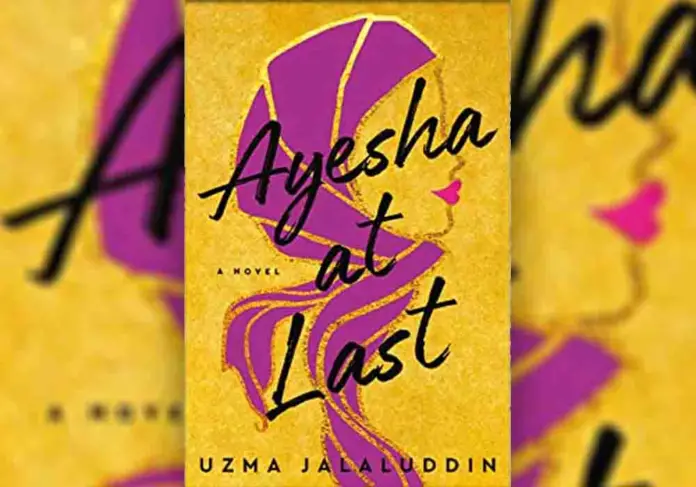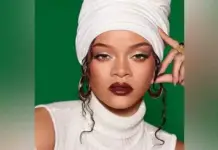Ayesha at Last by Uzma Jalaluddin is a novel that breaks stereotypes. A story of love, betrayal and friendship, the novel revolves around the lives of the protagonists, Ayesha and Khalid.
Ayesha is a poet and writer at heart. However, she gives up her passion and opts for being a school teacher because of financial responsibilities.
Khalid on the other hand works in the corporate sector.
Khalid is inclined towards Islam and that is evident not only from his physical appearance but also through his thought process. Dressed in a white robe with a beard, Khalid has full belief in what his mother would say about love and marriage:
‘Love comes after marriage, not before. The Western idea of romantic love is utter nonsense. Just look at the American divorce rate.’
As the reader reads on, the notion of Khalid engulfed by his mother’s opinions and norms weans the reader into an empathy with him or rather feel a distaste that a young, independent man cannot think for himself.
Khalid is a confused person. He is kind, polite, humble yet the concept of love and choosing a wife for himself sounds alien to him. Perhaps, it is because of what he witnessed in his past with respect to his sister Zareena that he has trouble believing in romance or being in a relationship with a woman! And when Khalid feels an attraction towards Ayesha, he is unable to handle it.
Ayesha too wears a hijab, but the hijab doesn’t strip her off from having fun and enjoying her life. She is the perfect blend of traditionalism and modernism. She thinks differently from Hafsa, her first cousin who is an immature and spoilt girl. She loves to shop and is always boasting about her favourite designer or latest crush. She is petite and good looking and most mothers find her a good catch for their sons because of her sycophantic behaviour.
Ayesha, on the other hand, is the complete opposite. She has a brain of her own. She can think independently and make her own decisions. For Ayesha, loyalty and honestly are the two most important tenets of life she lives by. She may wear a hijab but she is still an open minded and resilient woman.
Ayesha too, like Khalid, is an orphan who lives with her mother and grandparents.
Her Nana, a great fan of Shakespeare is no doubt her best friend. Through poetic literature, he subtly guides her through the roller coaster ride life reels out in front of her.
‘Love sought is good, but given unsought better.’
As Khalid and Ayesha lock eyes, they undergo a series of events, happy and tough circumstances.
The title, Ayesha at Last, is apt, for Khalid eventually does get Ayesha, but how he reaches his destination is what I leave for the reader to find out.
Uzma Jalalludin takes us through twists and turns, emotional turmoil and tumultuous passion before uniting the couple.
In the sub plot runs Hafsa’s story. As Hafsa makes one mistake after another, literally snatching Khalid away from Ayesha and then becoming victim to Tarek’s vicious scheme to ruin her reputation, she finally finds her soulmate – Masood.
Tarek is a vulture. He exploits women and Khalid teaches him a lesson so harsh that he would never dare to indulge in such an activity again. As for Masood, before marrying Hafsa, he also sent out a proposal to Ayesha through his mother, hence the animosity.
Ayesha is only too glad to see Masood and Hafsa tie the knot. And it is here at this point that Hafsa finally makes up to her cousin for her selfish and mean behavior. She invites Khalid and what happens next is something you all can guess. An intense tale of love and union, where cupid strikes, Uzma’s novel is beautifully laid out to encapsulate the reality of life. She clearly depicts how the world out there is to judge you; judge you for how you dress, how you act, how you talk. The world is cruel. It spares no one. One just has to find his/her way through.
As Ayesha and Khalid organize a Muslim conference in the mosque, they come up with titles such as ‘Muslims in the twenty first century’, ‘Beyond the sands of time: Examining faith in the Modern world’, but another character, Farzana, objects and decides the title, ‘Islam – the only pure choice’.
The blaring opposition in the message the taglines are trying to convey is apparent in the contradiction between the two generations. One sees Islam as a liberal and tolerant religion whilst the other sees it as rigid in terms of rituals and practices.
As the Imam explains marriage in Islam:
“Allah placed love in your heart and created you as two separate individuals. The Islamic view of marriage is not the same as secular romantic love.”
Our marriage is successful “because we have learned to forgive each other for not being the ideal. We accept each other’s limitations.”
The Imam stresses on the need for compromise and sacrifice on part of both spouses to make the marriage work.
Nana explains the concept of love through a flower.
“Flowers are often mistaken as superfluous yet their purpose is intricate and clever. They attract pollinators, ensuring their survival and in turn they are consumed for their nutritional value. Never underestimate a flower.”
Nana indirectly points to Khalid. He brings clarity for Ayesha. Their love is pure and reciprocated.
And as Ayesha takes to Nana’s advice and Khalid realizes how much he loved her, he proposes to her with the following words:
“You showed me that faith was a wide road. I was harsh, you taught me compassion. I was judgmental, you taught me to be brave and open. Please tell me we still have a chance.”
Ayesha says yes and the reader feels a surge of relief wash over. Finally! Khalid gets ‘Ayesha at Last’! How Khalid proposes to Ayesha leaves the reader teary eyed. It is so full of compassion, of feeling. It is true love – something that is hard to find.
The last straw where Khalid breaks even with his Boss Sheila as he changes his outlook, bringing the reader a satisfaction and smugness for having punished Sheila for her judgmental and evil behavior. Khalid decides to teach Sheila a lesson as he agrees to Amer’s plan:
“I think I held onto the robe too long. Just like I held onto some other things. But I’m learning to let go and edit.”
The novel concludes with the idea:
“You look great. And remember you are still you, no matter how you dress.”
How people dress does not always reflect on their character. As long as you are soft on the inside, nothing matters. Clothes are not a measure of the kind of person you maybe.
Ayesha at Last, is no doubt a novel on modern times yet it is not without the frame and limitations that our religion teaches us.







